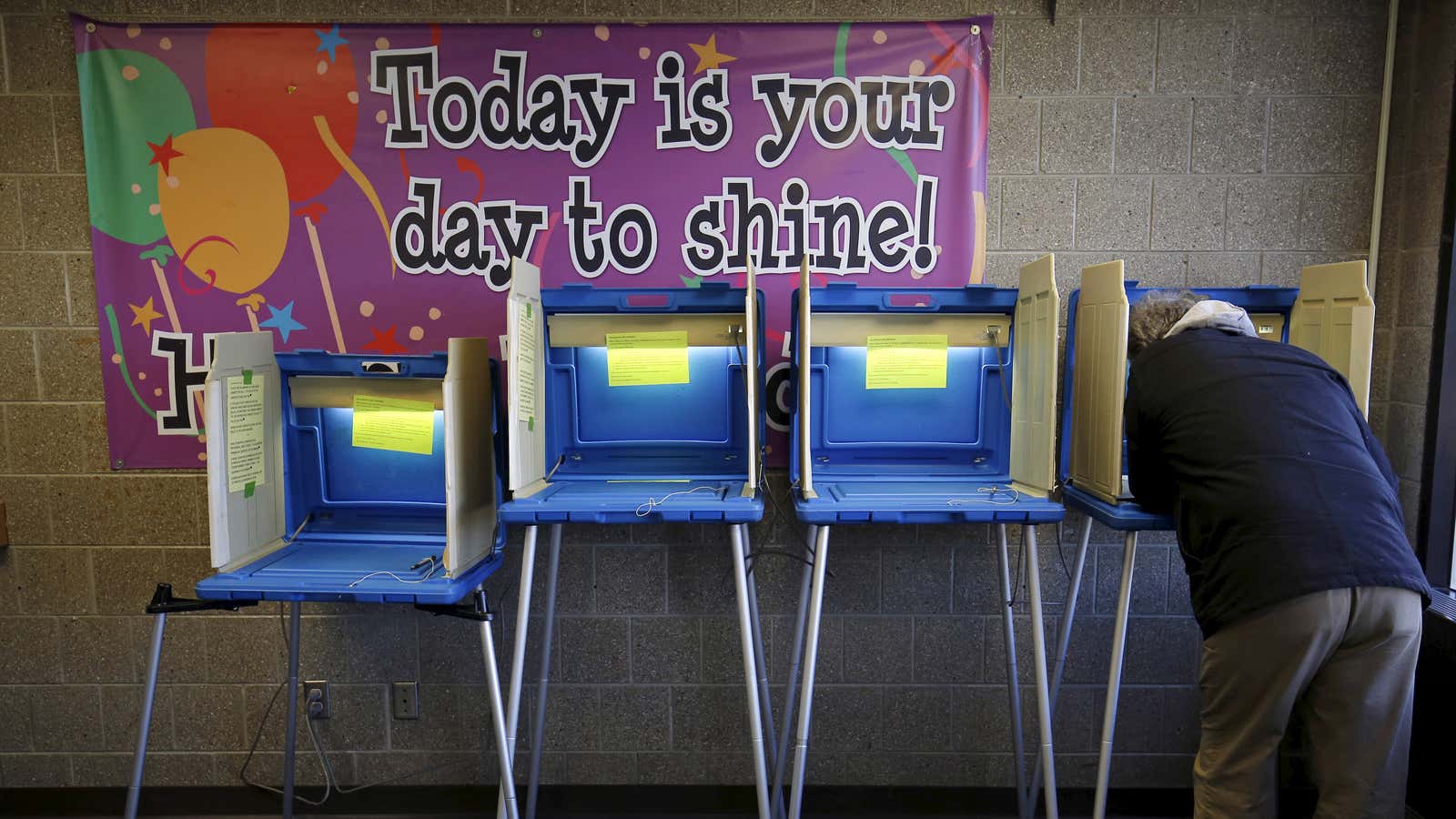Republican presidential nominee Donald Trump is warning that the US presidential election could be rigged. His statements come on the heels of hacks into Democratic Party institutions that are believed to have been perpetrated by Russia. Computer security expert Bruce Schneier has suggested that those hackers might try to throw the election in November by hacking voting machines. While it’s not clear if Trump is intentionally conflating those two things, he certainly seems to be capitalizing on a sense that US elections are insecure.
It would be incredibly difficult for anyone, Russian or American, insider or outsider, to rig a US presidential election. The reason is simple: Decisions about how to conduct elections are made at the state and county level. Anyone who wanted to systematically rig an election would have to do it one county at a time. Even if you aimed to tip the vote in only the most important counties of the battleground states, that would still require a dramatic and widespread conspiracy unlike anything ever seen in US elections.
There is a small federal presence in elections. The Elections Assistance Commission issues guidelines for running elections, including how to properly secure the vote, but those instructions are not legally binding. Consequently, elections in the US are an unruly patchwork of different requirements, technologies, and procedures. Some use touchscreens, some use paper. Some audit their vote counts, others don’t. This variability is not always a good thing. For instance, as Schneier points out, many states continue to use touchscreen voting machines that are outdated and vulnerable to being hacked. However, as a practical consequence this diversity of approaches also means that there is no one way to interfere with a presidential election.
That isn’t say there aren’t some real risks to the integrity of the vote. Were someone to monkey with the count in even one state it could trigger widespread distrust and uncertainty. No student of US elections will ever forget the months of angst caused by Florida’s “hanging chads.” However, as Vox’s Dara Lind points out, encouraging your supporters to believe that the only way you could lose is for the vote to be rigged much more directly undermines the democratic transition of power. There is no evidence that rigging an entire election is feasible, but that may not matter if Trump’s supporters believe what he says.
The biggest obstacle to a free, fair, and representative election is not inference by Russian hackers or party insiders. A huge number of American’s won’t even try to vote in November. Of those that do, many will fail because they didn’t to register in time, got stuck in long lines at their polling place, or were blocked by new voter identification laws. If Trump needs something to worry about, he should worry about getting the electorate into voting booths.
It’s one of vanishingly few things both candidates should still be able to agree on.
